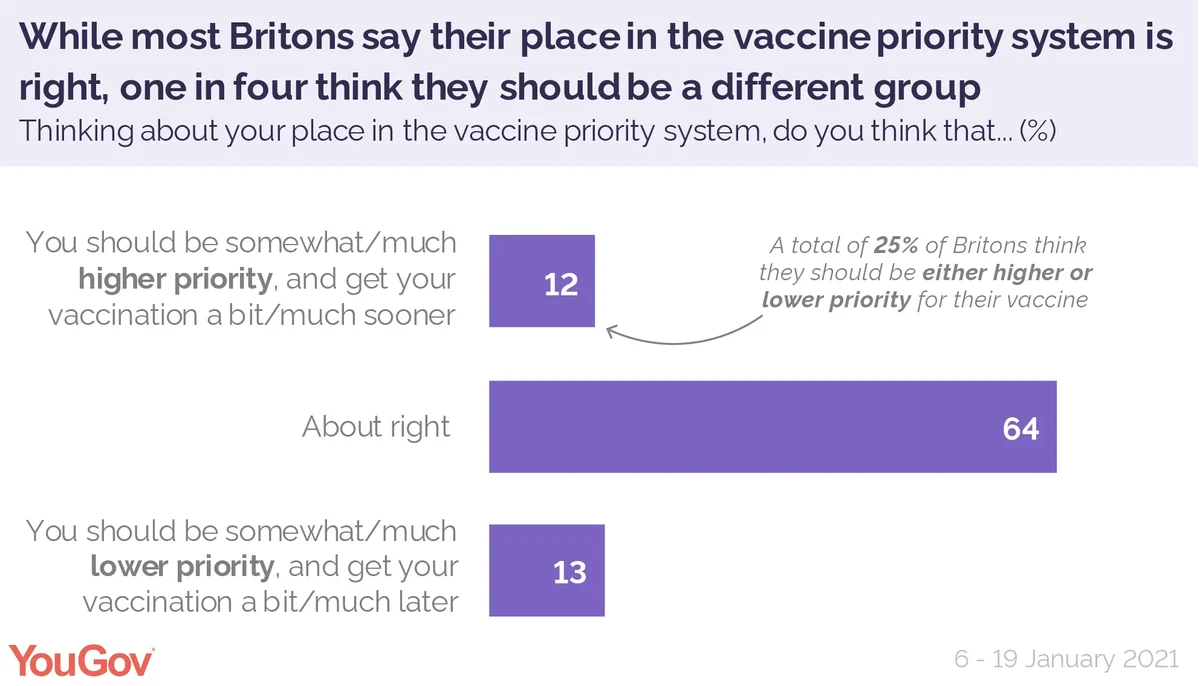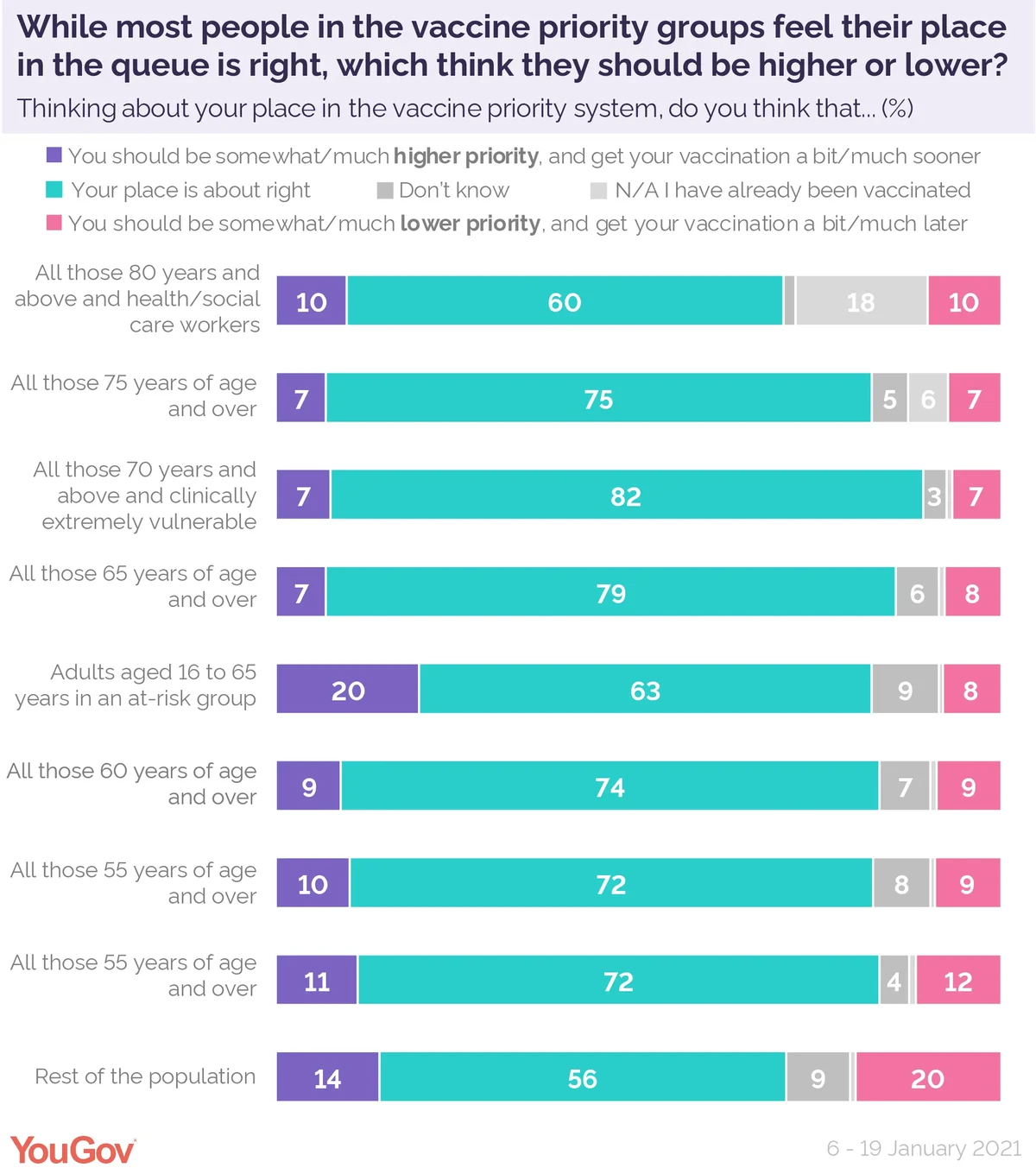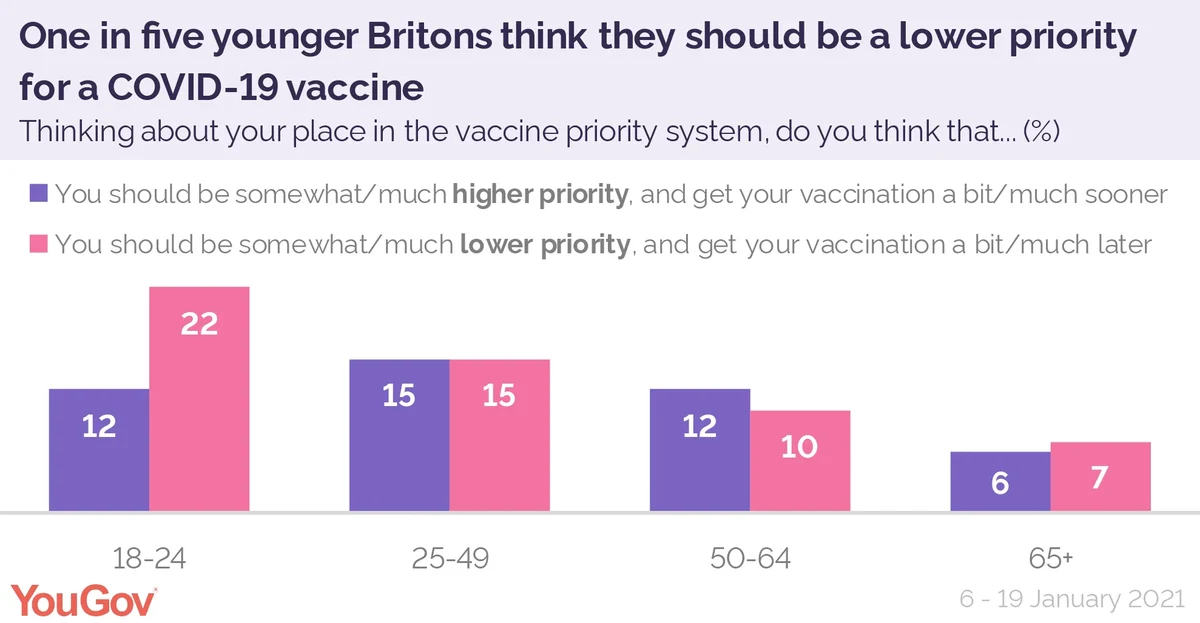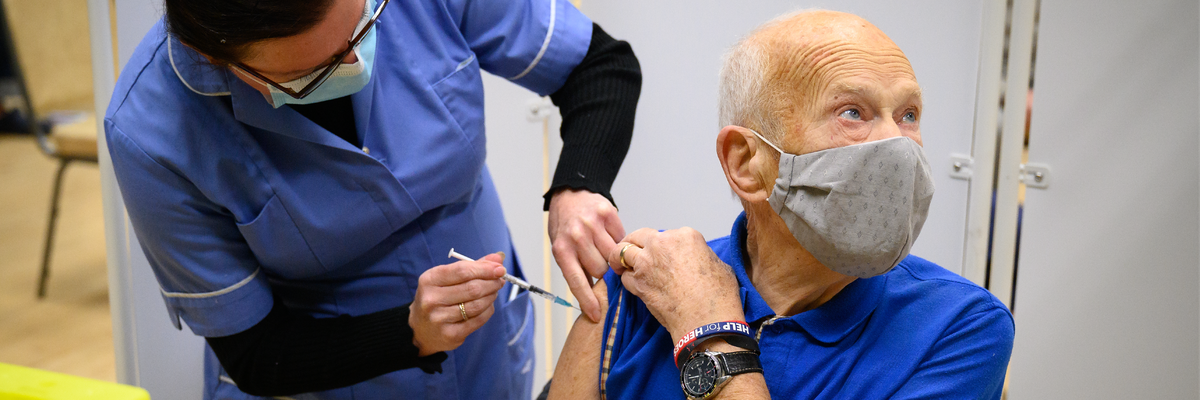New YouGov research shows that one in eight want to be higher up the queue, but a similar number think they could be a lower priority
The COVID-19 vaccine rollout is one of the few areas that the public says the government is handling well. The government aims to have all nine of its priority groups, starting with care home residents and ending with all those over 50, vaccinated by the end of April. Previously YouGov has asked people who they think should be prioritised for vaccines, but how do Britons feel about their place in the queue waiting for a jab?
Most people are happy with where they fall in the vaccine priority groups
Of the population overall, just under two thirds (64%) think they are in the right place in the vaccine priority system. Around one in eight people (12%) think they should higher up the list, and get their jab sooner.

A similar proportion of Britons (13%) say they think their place in the queue for a vaccine is too high, and that they could wait longer for theirs, including 8% who think they should be “much lower priority and get [their] vaccination much later”.
Looking at respondents who are in one of the government’s priority groups (not including care home residents) shows that while, again, most are content with their place in the queue, there are some who think they should be higher up the list. This is most notable among adults in the “16 to 65 years in an at-risk group” (which includes people suffering with long term diseases such as cancer, diabetes) of whom 20% think they should get their vaccination sooner than planned.
Those in the “70 years of age and over and clinically extremely vulnerable individuals” group are the most likely (82%) to think their place in the vaccine prority system is about right.

Of those included in the “rest of the population” group - who will have to wait the longest for their vaccinations - 14% believe they should be a higher priority, while 20% think they should actually be a lower priority and get their vaccinations even later.
Britons under 25 are the most likely to think they could wait longer for a jab
One in five 18-to-24-year olds (22%) say they should be a lower priority than they are, including 16% who think they could wait much longer. In comparison, 12% of this age group think they should be a higher priority than they are.

Among 50-64 year olds - all of whom will fall into one of the priority groups - 12% believe they should also be further up the list for their COVID-19 jab, while on 10% think they should be a lower priority. Among the over-65s, who will also all be in one of the priority groups, only 6% believe they should be a higher priority compared to 7% who think they should be a lower priority group.










